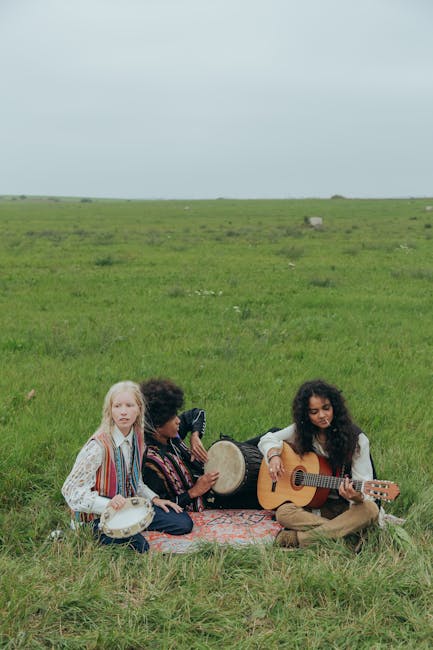"Listen. Do you hear that?" my grandmother asked me. "Listen. Listen to what the beetle is saying." I would spend hours and hours
listening to the little beetle rolling a huge ball of dung, and while at it, I heard a variety of environmental sounds. With the keenest of ears,
I would hear family chatter, laughter, the wind howling and even crickets chirping. All these sounds crisscrossed
into each other, and I would hear rhythm in between. Then I would beat my plate with a spoon
and my chest with my tiny hands trying to recreate what I was hearing. I have been beating the same plates, shakers, drums, pans
and so much more ever since to become a professional drummer and percussionist. (Applause) As I grew up, subconsciously, I felt a strong urge
to hide my newfound hobby.
Even without it being said out loud, I knew that somehow
it was wrong to do what I was doing. In most of the ceremonies, I noticed that most of the women
and girls were not in sight, but when they were, I noticed that they would wear
their dancing skirts and shake their waists off, singing, clapping, ululating, while the men filled up
the rhythm section. A few years later, I came to understand what tradition and culture meant, and what was considered taboo or otherwise. In the majority of African cultures, women have been forbidden
to play drums and percussion for a very long time. I believe this taboo stems from
the psychological and traditional belief that the woman is an inferior being. I grew up hearing that the place
of the woman is in the kitchen or in the other room. Mhm? (Laughter) Women had been brainwashed
and led on for so long until we had fallen victim and actually
started believing in this ourselves. This, coupled with the lack
of interest to educate women, played a major, major role in etching this into our minds. The sounds of the drum
provoke emotion and movement.
Essentially, the drum
is a very sensual instrument. Once at a festival, a man asked me how I dared put a drum in between my legs. I have been considered loose and dirty
for playing an instrument. I have repeatedly been questioned why I would choose to play drums instead of practicing journalism, which I studied for my undergraduate, which has been termed "more decent." The sight of a woman
playing drums enfeebles her, makes her less feminine, less desirable, but all this optimally
puts her on a lower social stand. Drumming has essentially represented
the strong African heritage, and its importance can be seen in the many aspects
of the African tradition.

Many communities encompass drumming
in their day-to-day activities, and still do up to date, from childbirths to initiation ceremonies, welcoming ceremonies, marriages and even burials. However, this same drum is disappearing very fast
from the music scene, and the traditional genre
is losing its popularity very quickly amongst the people. Inspired by the need
to preserve this culture, I am teaching the significance
and the importance of the drum to young boys, women and girls. In my journey as a percussion teacher, I have realized that very many women actually want to play the drum, but at the same time, they fear it.
Some fear how society will perceive them. Others fear the physical pain
that comes with playing. Oh yes, it's not that easy. Some, because their spouses
don't approve of them, and others generally
fear the responsibility of being a bearer of culture. I believe, or I think that all these fears are etched in the collective
feminine cautiousness because when we learn of the atrocities
that have happened to women, continentally especially, it serves as a constant reminder that one step out of our designated place may end up in very serious consequences. Well, I use my drum to tell my story
and my people's stories. My roots shaped me
and my culture is here to stay with me. Women can be custodians of culture, too. We are born to bring forth life, to nurture it.
We can definitely preserve our traditions
very, very excellently. My drum and I, we are here to stay. (Applause) We are definitely here to stay. If women have led countries, women have gone to space, women have won Grammys, then the same, same women
can play the drum and play it — to a five-star rating? No, to a million-star rating. Thank you. (Applause) (Chiming) (Metallic drumming) (Chiming) (Rattling) (Drumming) (Applause).

